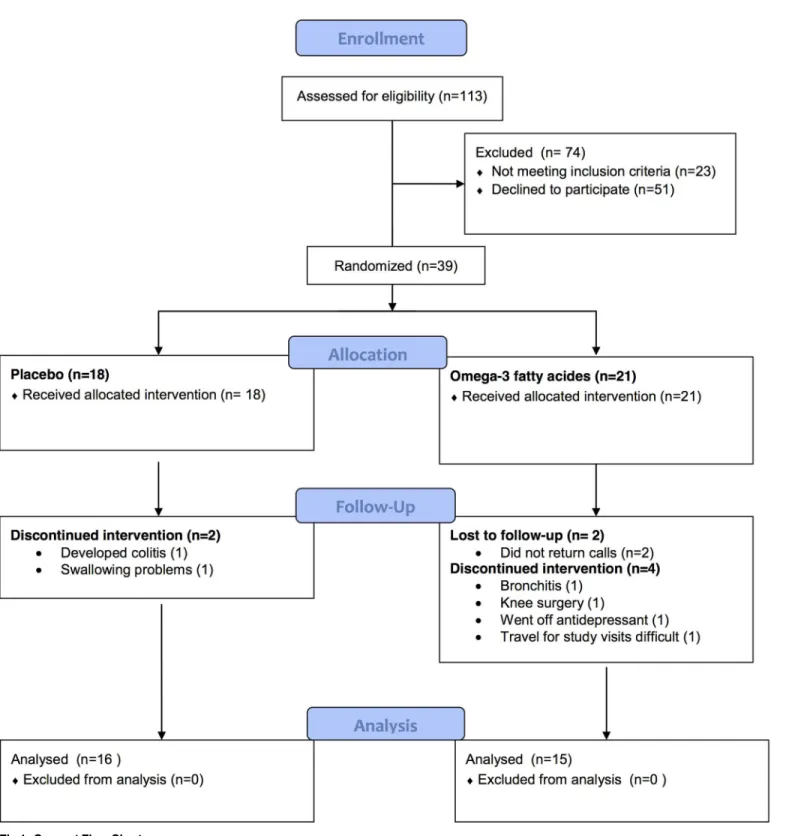Omega-3 Fatty Acids for Depression in Multiple Sclerosis: A Randomized Pilot Study.
Texto
Imagem




Documentos relacionados
This study consists in a systematic review with meta-analysis of randomized clinical trials to as- sess the use of Omega 3 fatty acids for the treat- ment of hypertriglyceridemia
These data used for PCA were: PUFA:SFA (ratio between polyunsaturated fatty acids and saturated fatty acids), n-6:n-3 (ratio between total omega-6 fatty acids and omega-3
SFA: total saturated fatty acids, MUFA: total monounsaturated fatty acids, PUFA: total polyunsaturated fatty acids, n-6: total omega-6 fatty acids and n-3: total omega-3 fatty
In conclusion, in this 12 weeks study in low disease activity lupus patients, the supplementation with omega-3 fatty acids was not associated with changes in serum levels of
In accordance to the above mentioned findings, as omega-3 fatty acids per se have a direct cardiovascular protective role, our paper hypothesized that omega-3 fatty
In these lines, n-3 fatty acids may be used for the preven- tion of SUDEP 3,10 , as omega-3 fatty acids per se have been shown to reduce cardiac arrhythmias and sudden cardiac
Depression and anxiety have been reported in patients with multiple sclerosis (MS) and in patients with clinically isolated syndrome (CIS).. However, the precise mechanisms that
After electroconvulsive therapy, all patients showed a statistically signiicant improvement in the Brief Psychiatric Rating scale (reduction of 52% points) and Hamilton